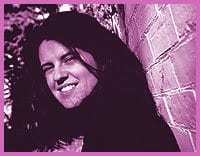The AIDS Committee Of Toronto was first housed in a few small offices above a Kentucky Fried Chicken outlet at 66 Wellesley St E. The landlord asked the fledgling organization to limit its advertising to a small window sign, but this was not a problem since ACT didn’t want to advertise. It wanted to protect the privacy of visitors – and besides, when it first opened there were bomb and fire threats.
Today, as the organization approaches its 20th birthday in 2003, a huge ACT sign is affixed to the top corner of the four-storey building at the southeast corner of Church and Carlton. Two entire floors of offices in the building house ACT and its 35 full-time and nine part-time employees.
Looking ahead, how well ACT stays grounded in its original gay and lesbian community, and how well it connects with and helps serve other affected communities will determine whether or not it turns into just another self-serving bureaucracy.
Back in 1983, ACT began life scraping by on a shoestring from a federal job creation grant. Today, it has a budget of about $5-million – more than half of which comes from fundraising and donations, with about one-fifth of their revenue coming from federal, provincial and city government sources.
ACT officially came into being during a July 1983 standing-room-only community meeting of mostly gay men at the Jarvis Collegiate auditorium. They were worried about the strange new illness and they were organizing to fight the stigma and homophobia associated with what had been called the “gay plague.”
If they’d been asked about the future, the founders of ACT would probably have said they didn’t want there to be an AIDS Committee in 2003. They would have hoped that, by then, the mysterious and deadly new illness had disappeared.
But today, AIDS is firmly established among gay men and it has also taken root among other groups marginalized from the Canadian mainstream like poor people, Aboriginals and injection drug users.
ACT, meanwhile, is widely acknowledged to be a well-run organization that has been working hard to strengthen ties with smaller, often struggling, AIDS agencies. The agency has had its ups and downs over the years and observers give much of the credit for its current stability to the late Charles Roy, who served as executive director from 1996 to 2002.
Roy left an impressive legacy and the ACT board has taken the unusual step of holding a community consultation to determine the qualities and qualifications that his replacement should have.
The consultation underscores the importance placed on ACT’s role working with smaller agencies, says Patrick Truong, acting executive director of the Asian Community AIDS Services. ACAS has had its difficulties with ACT – Truong says a community consultation before the recent Condom Country safe-sex campaign was essentially tokenistic – but credits ACT with playing “a good role as a big brother agency.”
Janet Rowe, a former ACT staffer who is now with Voices Of Positive Women, says ACT has been very supportive of Voices, which serves women across Ontario.
“ACT is the richest, largest AIDS organization. A key challenge in the future will be how it understands and works with smaller agencies,” says Rowe.
There are important emerging issues, Rowe says, that ACT must deal with, including safe-sex fatigue and effective prevention campaigns, misconceptions about treatment, poverty, homelessness and AIDS among immigrants and refugees.
“These issues did not face ACT 10 years ago,” Rowe says.
Observers agree that ACT will have to keep its ear to the ground in order to maintain itself.
“There’s still a lot of grassroots dynamism,” says former board chair Michael Battista, an immigration lawyer. He says he’s proud of the way ACT has survived government funding cutbacks and built up its own funding sources.
Betty Ann Rutledge, former long-time head of volunteer services at ACT, says volunteers continue to be the heart of the organization.
“There have been crazy times, but the volunteers got us through,” Rutledge says. “ACT doesn’t belong to the board or the executive director. It belongs to the community.”
ACT has been very successful at fundraising, so successful that some have said there is more brand recognition of its most glamorous event, Fashion Cares, than of ACT itself. But fundraising can fail, and some US AIDS organizations have been seriously hurt as their AIDS walks and other efforts have faltered.
A danger ahead is that in its search for funding ACT starts “cosying up to people you’re supposed to hold accountable,” like tobacco and pharmaceutical companies, argues Lee Zaslofsky.
A member of the Toronto Board Of Health, Zaslofsky left ACT when he felt a long-standing policy against accepting tobacco money was in danger of being rescinded.
“I just felt out of sync, that passionate discussion was discouraged… that the tone of the organization was business-like,” says Zaslofsky.
But ACT is also looking for more government funding and is part of a coalition pushing governments to accept more responsibility for HIV/AIDS, says acting co-executive director Lori Lucier. In particular, she points out that the budget for the federal AIDS Strategy has not increased in years.
* Ann Silversides book about early AIDS activism in Toronto, AIDS Activist: Michael Lynch And The Politics Of Community, will be published in Spring 2003 by Between The Lines press.
AIDS COMMITTEE OF TORONTO.
399 Church St, fourth floor.
(416) 340-2437.
www.actoronto.org.

 Why you can trust Xtra
Why you can trust Xtra


